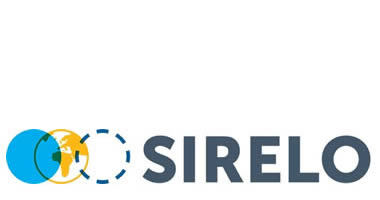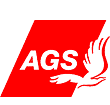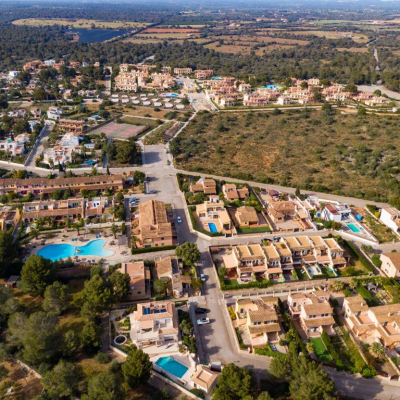Obtaining a NIE (Número de Identificación de Extranjero)

Each foreign resident in Spain is required to register for a número de idientificación de extranjero, known colloquially as a NIE (knee-yay) and translated as a Foreigner Identification Number. This number is used to all transactions, including opening a bank account, registering in the social security system and of course working legally.
A NIE is available for anyone legally residing in Spain and its autonomous cities, whether working, studying or living. To obtain one, applicants must register at a police station of foreigner's office, pay a small fee for processing and present the necessary paperwork.
Spanish nationals have a similar number, called a DNI, or documento de identidad de nacional. The main difference with the NIE is that the letter X precedes seven numbers and single letter, whereas a national would have merely the seven numbers and a letter; 1234567-A.
A NIE is not necessary for stays under 90 days, though it is renewable up to 60 days before the expiration date, so long as the paperwork has been presented and improved. There is no limit to the number of renewals, called prórrogas. Student visas are available on a one-year, renewable basis. NIEs obtained through repatriation, marriage or permanent residents are available for renewal every five years. Work permits will vary according to the nature of the work and autonomous community.
Central Office of Foreigners' Affairs:
C/ General Pardiñas, 90
28006 Madrid
http://www.interior.gob.es/extranjeria-28 (Spanish and co-languages only)
What is a NIE?
The NIE is, in its most basic sense, a number that identifies you and registers you in a nationwide database of information. Such data is used for the following purposes:
- Paying taxes
- Applying for a mortgage
- Buying and selling property
- Using the Social Security system
- Applying for a business or work permit
What's more, a NIE allows you to move freely throughout Europe and work in other member countries when local regulations for obtaining a number are met.
Where to Present Paperwork
Citizens within the Schengen Agreement have the legal right to live and work in Spain, whereas those outside the Schengen countries must apply for a NIE within 60 days of their arrival in Spain after obtaining a visa from their home country.
How to apply for a NIE
To apply for the number, you'll need to present the following, translated into Spanish when necessary:
- A valid passport, with visa affixed
- A photocopy of your entire passport
- Two passport sized photos (note that they may be of a different size than those of your home country. You can have them done at most copy centers and photo shops)
- Form EX-00, signed and dated, plus a photocopy for your records
- An address in Spain (a place of work could also be used)
- Some type of justification (of studies, work, intention to buy property, etc.) of intention in Spain and financial means
- Proof of health insurance, whether private or public
The actual process of applying for the number in person will depend largely on where you're applying for it. In all province capitals, there is an Oficina de Extranjeros, a Foreigner's Office, where you can turn in your documentation. Many larger towns also have a police commissary where the legalities can be taken care of. If you're in a rural area, you'll need to go to the nearest commissary or foreigner's office. Information in the Spanish language on where to find such offices, their hours and location can be found by clicking here.
Note that most of these offices are only open in the mornings from 9:00 until 14:00, and are nearly shut down during the months of July and August. In Madrid, there is a system of appointments which allows you to book ahead of time, either by phone (807 502 019) or over the Internet. In other places, you'll have to wait in line and take a number. As there are limited numbers of tickets, it's unavoidable that you'll spend the better part of the morning waiting, so bring a book!
Typically, you'll be asked to make three trips:
On the first, to present your documentation, where will be given a form to take to a bank to pay a fee, called a tasa, depending on the type of NIE solicited. This fee will be between 3€ and 25€. The amount also covers the cost of issuing the card.
One the second visit, you'll be asked to return the bank form with a legal stamp, stating the fee has been paid, and then have your fingerprints taken. You'll then be given a piece of paper with your NIE number on it. This temporary card can be surrendered after the standard 45 days that it will take to process the card, so make copies and keep it in a safe place until retrieving the other card.
Finally, you'll make a final visit to pick up your card. You'll need a photo ID.
Renewing a NIE
So long as the requisites for a NIE renewal have been met (proof of intent, proof of medical insurance, proof of financial means), reapplying is fairly simple. From the 60 day period before your card expires, and up to 90 days after in some communities, you can bring updated versions of your paperwork (most official forms are valid just 90 days) and turn them into the office.
The fee will be either 16,32 (for students or without a visa) or 30€ with a visa.
Important Forms
- Form EX-15 (for the initial application for a NIE)
- Form EX-01 (for residence with no lucrative intention)
- Form EX-05 (for residence with work permit)
- Form EX-19 (for marriages and civil unions)
Other forms can be found on extranjeros.empleo.gob.es.
By Cat Gaa, who left her native Chicago five years ago to live in the olive groves of Andalusia. Residing in Seville, she teaches first grade at a private school, but all she wants to really do is write.
- My Life Abroad -
A selection of expat stories

"A fun compulsive read!"
J. Matcham, Amazon
"I strongly advise people ready to live abroad to read this book!"
Patrice, Amazon

 Embassies and Consulates in Spain
Embassies and Consulates in Spain
 AGS Worldwide Movers
AGS Worldwide Movers Fexco payment solutions
Fexco payment solutions 1stMove Car Shipping
1stMove Car Shipping Why using an alternative broker for large money transfers
Why using an alternative broker for large money transfers